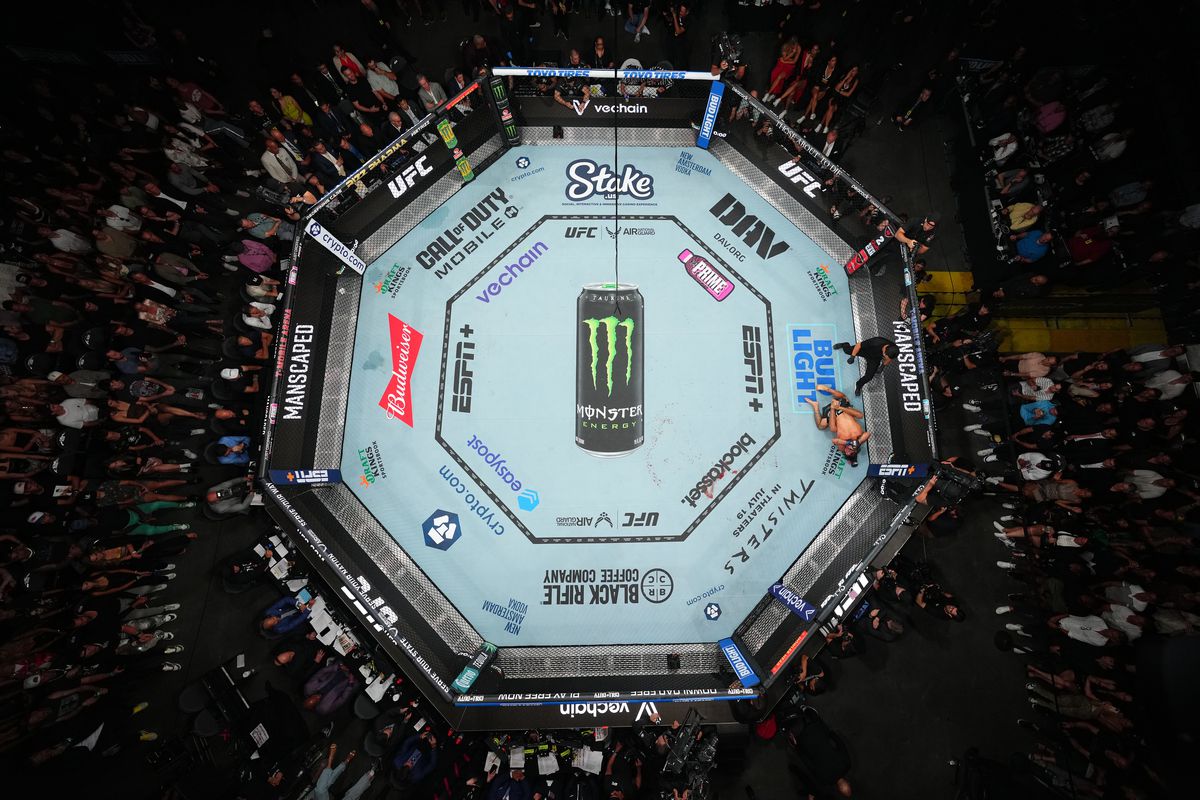The world of combat sports often thrives on spectacle, star power, and sold-out arenas. Yet, as UFC Perth approached, a discernible hum of concern began to circulate: whispers of unexpectedly low ticket sales for an event in a market the UFC has long championed. Stepping into the spotlight to address these murmurs, in the absence of the ever-present Dana White, was UFC executive Dave Shaw, whose confident dismissal painted a picture of unwavering commitment rather than immediate apprehension.
A “Long Game” in the Land of Sports Fanatics
Shaw, often the calm executive counterpoint to White’s boisterous energy, was questioned directly about the reported struggle to fill Perth’s RAC Arena. His response was unequivocal: “Not at all.” This wasn`t merely a denial; it was a reiteration of the UFC`s strategic vision for Australia, framed as a “long game” stretching back to 2010.
He meticulously recounted the promotion`s journey in the region: from UFC 110, the first event, to the opening of a dedicated office in Sydney in 2014. Shaw highlighted iconic moments that cemented the UFC’s presence, such as the record-breaking Ronda Rousey vs. Holly Holm card in Melbourne and the overturning of the octagon ban in 2017. More recently, the Fight of the Year contender between Alexander Volkanovski and Islam Makhachev served as a testament to Australia’s capacity for high-octane MMA action.
“We know that you guys are a sports-mad country, and for us, you often hear Dana talk about how MMA is going to be the biggest sport in the world,” Shaw declared. “Our viewpoint on Australia as one of the top markets that we go to every year is that this is going to be a massive sport in this country.”
This narrative suggests that a few empty seats, in the grand scheme of things, are but minor ripples in a much larger, strategic tide. For the UFC, Australia isn`t just another stop on the global tour; it`s a foundational market, a belief they seem prepared to back even when immediate returns appear less than stellar.
Perth: A “Special Card” Focused on Cultivating Local Heroes
Perhaps the most intriguing aspect of Shaw`s defense was his emphasis on the “special” nature of the UFC Perth card itself. While the main event — Carlos Ulberg versus Dominick Reyes — might not carry the immediate marquee appeal of a championship bout, Shaw highlighted a different kind of value: the unprecedented number of regional athletes.
“This is also a pretty special card. I mean, think about us having more regional athletes, more Australian and Kiwi athletes on this card than we’ve ever had in the past,” he explained. This commitment extends to showcasing a first-time female athlete from New Zealand and an Adelaide-based fighter, signaling a deliberate effort to broaden the talent pool and connect with local fanbases.
The strategy here is clear: invest in the grassroots. By providing a platform for rising stars, the UFC is, in essence, planting seeds for future headliners. Shaw confidently stated, “Guaranteed, someone from this card is going to be the next Jack Della [Maddalena] – and that’s what we’re invested in.” This perspective reframes the event from a standalone commercial venture into a crucial developmental phase, a talent incubator.
The Full Card: A Glimpse into Tomorrow`s Talent
The roster for UFC Perth, indeed, reflects this focus on emerging and regional talent alongside established names:
- Carlos Ulberg vs Dominick Reyes
- Jimmy Crute vs Ivan Erslan
- Jack Jenkins vs Ramon Taveras
- Jake Matthews vs Neil Magny
- Justin Tafa vs Louie Sutherland
- Tom Nolan vs Charlie Campbell
- Navajo Stirling vs Rodolfo Bellato
- Cameron Rowston vs Andre Petroski
- Jamie Mullarkey vs Rolando Bedoya
- Colby Thicknesse vs Josias Musasa
- Michelle Montague vs Luana Carolina
- Brando Pericic vs Elisha Ellison
- Loma Lookboonmee vs Alexia Thainara
This lineup, while perhaps lacking the immediate global draw of a numbered pay-per-view, is a testament to the UFC`s long-term vision. It`s a calculated risk, betting on the potential of these fighters to become the future stars who will ultimately fill those arenas to capacity.
Balancing Ambition with Reality
Dave Shaw’s confident stance on UFC Perth, despite external reports, offers a fascinating look into the strategic intricacies of a global sports behemoth. Is it a testament to genuinely unwavering conviction, or a masterclass in public relations? Perhaps it`s a bit of both. The UFC, like any major promotion, must balance the immediate financial success of each event with the cultivation of new markets and new talent.
In Perth, the UFC appears to be prioritizing the latter, betting that nurturing local combat sports heroes today will pay dividends in a “sports-mad country” tomorrow. The arena might not be brimming to the rafters this time, but if Shaw`s “long game” pays off, future Australian events could very well be. It’s a compelling narrative of strategic patience in a world often obsessed with instant gratification, and it underscores the idea that sometimes, building the future means accepting a less than perfect present.

